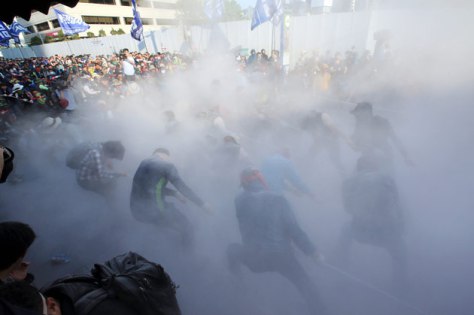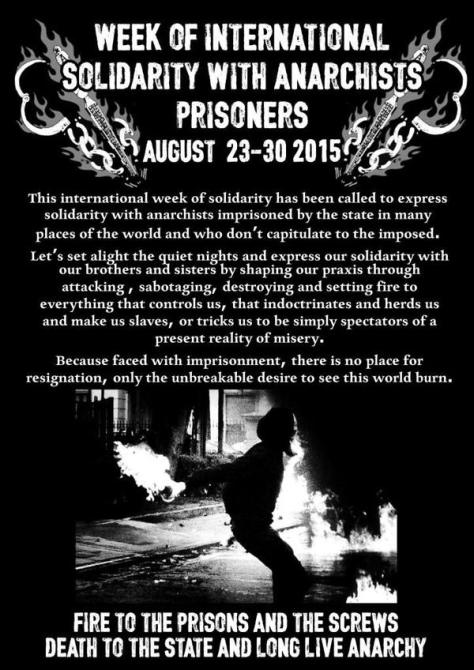Juchari Uinápikua, Our Force, Our Strength.
The P’urhepecha people in Cherán rose up to defend their forests and community from cartel control and the corrupt police that partnered with organized crime. It was spearheaded by women who were tired of their sons and husbands disappearing into the void that is cartel abduction and violence.
They began by trying to protest against the cartel backed loggers on the streets, it ended with molotovs and the storming of police stations to gather assault rifles to defend themselves. There was no turning back at that point, they began to establish fogatas, something like a camp fire, in every block to keep watch and stay vigilant to any attack. This became a nightly routine, it was also in these community camp fires that they made decisions on what to do in their communities. You know it as direct democracy, they know it as decolonization. Through the process of decolonization, they also established their form of self defense, how their communities used to defend themselves in the past.
Ronda comunitaria. Communal self defense.
A literal translation wouldn’t work, so I gave you what it is in practice. I’ll explain what that practice is, and you can see it here.So a community kicks out cartel elements, and the police along with the politicians because they all knew these were all the many heads of the same hydra. Of course those they kicked out would attempt to return, angrily to be certain. Campfires on every block is good to stay vigilant, but how do you defend your community should these vile elements return? Ronda comunitaria was the traditional form of self defense, now in their modern form they used what used to be police vehicles and assault rifles that used to belong to the police. Instead of using those tools to repress, kidnap and help cartel forces like before, they used them to defend not just their community, but also their forest.
Naná Echeri, our mother earth, land.
The trucks that once belonged to corrupt police were used to patrol the forests to keep loggers out. They not only defended Naná Echeri, they also replenished her with reforestation efforts. Over 50 thousand trees were planted to help heal the damage the loggers had brought upon Naná Echeri. The people of Cherán not only defend, they also heal. Above that, they shine like a lighthouse guiding the lost ships in a violent cold sea to a vibrant Naná Echeri. Where once Tatá Jurhiata, father sun, gave his light to a land that was nothing but burned tree stumps, now nourishes the growing trees of Naná Echeri. The people of Cherán are now in direct control of not only their politics, lives and selves, but also their environment.
It is difficult to find an equivalent in so called modern societies, we claim democracy in Europe and the United States of America, but there is no self determination in either. In Cherán, an indigenous people became the Tatá Jurhiata for the rest of the world. I once thought it was just the light for Mexico, to show our people how to not only resist but flourish. It is the sun for the whole world to show you how to not just defend life, but how to nurture it so it can grow in many beautiful ways on Naná Echeri. They are now an autonomous community using traditional self governance. They’ve taught us so much. I hope the language is never lost upon you.
Juchari Uinápikua
Source: You Will Learn A Few New Words In Resistance | MexicAnarchist
















